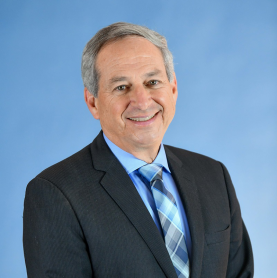4-28-21
UPDATE: Members of the Los Angeles Unified School District (LAUSD) School Board have responded positively to CCRC’s concerns about the impacts of universal preschool and transitional kindergarten on the availability of private child care and committed themselves to seeking input from child care providers and industry advocates. We look forward to working with the LAUSD School Board in the development of this plan and intend to participate in ongoing planning sessions to ensure families continue to have options to satisfy their child care needs.
4-23-21 – In response to a Tuesday vote by the LAUSD School Board in favor of creating Universal and Transitional Kindergarten for all 3 and 4-year-olds, Child Care Resource Center’s President & CEO warned of unintended consequences on the availability of child care.
Dr. Michael Olenick shared in an op-ed to the LA Times his assessment of the LAUSD Board’s decision. His response includes six reasons why the vote will disrupt and deplete an already strapped child care industry. Dr. Olenick argues that creating a universal program will put private child care and preschools at risk of going out of business. He also calls attention to the fact that LAUSD teachers are not required to have child development training, unlike many private child care providers. Additionally, Dr. Olenick notes that a stable child care environment is at risk in a universal program because many parents work beyond the 7-hour day established in a traditional part day care program.
The future of Head Start, which offers developmentally appropriate programing for children with special needs and mental or physical health challenges, is further put at risk by this plan. As Dr. Olenick argues in his op-ed, parents may gravitate toward the LAUSD universal TK or preschool program because they don’t have to verify their income. This could jeopardize the existence of Head Start, which has supported children through education, nutrition and development for over 60 years.
LAUSD Board’s decision to create a universal preschool and TK program by 2024 puts the child care system at risk of collapse. Following Dr. Olenick’s response to the vote, which you can read here in its entirety, two LAUSD Board members answered the letter and their responses are included at the end of this article.
On Tuesday, April 13th the LAUSD School Board voted to create Universal Preschool and Transitional Kindergarten for all 3 & 4 year olds by 2024. This was followed by an LA Times call to increase child care support for working families on Monday April 19th. The LAUSD School Board decision will very likely decrease the supply of child care rather than increasing it.
And, here’s why.
1. If ‘universal’ means free, then private child care and preschool programs are at risk of being put out of business. When Oklahoma City transitioned to the universal concept, it resulted in a severe decrease in the private supply.
2. Head Start preschools are at risk. In the City of Los Angeles, there are roughly 10,000 parents who may choose LAUSD over Head Start because they don’t have to prove they are low income. Head Start programs have been in existence for 60 years and provide school readiness activities in a developmentally appropriate way with adult child ratios of 1 adult for every 8 children, nutritional meals, special needs assessments, mental health support, health screenings including dental, and parent empowerment. Many Head Start programs blend California Department of Education State preschool program resources to create full day, full year programs.
3. LAUSD teachers are not required to have child development training. In an elementary school setting, will there be adequate time for children to explore, play and rest? Will there be adequate, age appropriate outdoor play equipment? Will adult child ratios follow early care best practices or will 20-30 children be assigned to one teacher?
4. Traditional part day programs require parents who work to make a second arrangement to accommodate the other 7 or more hours of care for their children. What happens during school breaks, summers, and pupil free days? Young children need consistency and stability.
5. LAUSD’s own CA State Preschool Program does not fit the universal preschool direction. Will they give up that program, as other agencies will have to do?
6. LAUSD will also need to examine their physical plants to determine whether there are sufficient classrooms appropriate for children younger than are currently served. Are there bathrooms that accommodate much smaller children? Are they easily accessible? Are lunch and activity tables, desks and chairs appropriate for 3 and 4 year olds?
I would hope that before moving forward with the universal preschool plan LAUSD will confer with all Head Start organizations that operate within the City of Los Angeles.
I would also hope that, before moving forward with this plan, LAUSD consults with private child care providers who currently provide full day programs. There many available studies that show how New York City and Georgia integrated the private sector into their universal programs. Perhaps LAUSD could contract for the preschool portion at the private sector sites which more likely support full time, working parents.
Board member responses:
Nick Melvoin: Thanks for the email and for expressing your concerns. Our goal is to work with our partners, community members, stakeholders, and early care and education providers to ensure that every three-and four-year old in Los Angeles has access to preschool by 2024. We know that the District cannot reach this goal alone, and we must engage current ECE providers, including private child care and preschool programs. This mixed delivery system will likely include private providers, Head Start providers, FCCs, and additional District programs. We have also asked for the District to examine creative and innovate approaches, such as a sliding scale option for families and leasing District facilities to private and non-profit providers. I hope that CCRC will participate in District planning and development sessions to provide needed and valuable input as we seek to expand quality access for our youngest learners.
Kelly Gonez: I welcome the opportunity to clear up a number of misconceptions it appears you have about the resolution as well as LAUSD’s early education programs. I’ve attached the resolution in case it is helpful to read it through.
• This resolution is a first step in directing staff to create a plan for universal preschool by 2024 and sets out key pillars and strategies for achieving that end. Expanding early education has become a priority at both the federal and state level, and we in Los Angeles want to be prepared to meet the expected additional investment in programs.
• The resolution specifically contemplates that universal preschool will only be achievable by 2024 in partnership with external providers. Specifically, one of the six pillars at the center of the plan for universal preschool is “Meaningful partnerships with community and home providers.” In addition, the discussion around the resolution was explicit that the ability to serve all young learners will include existing and expanding outside providers. As such, it is a leap to suggest that external providers would be forced to close when the reality is that there will likely be opportunities to expand.
• The resolution recognizes the benefits of the Head Start program and specifically calls for looking into expanding these types of programs in Los Angeles. It will take a variety of programmatic offerings to achieve universality.
• LAUSD offers a number of early education programs, including at our early education centers, ETK, and State preschool. We currently operate 87 early education centers that are full day programs with the requisite student to staff ratios.
• All of our early education programs have age-appropriate facilities, include play spaces and restrooms. We are well aware of the potential need to convert space to fit early education programs, which is one of the reasons that early child programs are included in our recently passed bond measure, Measure RR.
• Many of the concerns raised can and will be addressed in the forthcoming plan (which will also include gathering input from partners such as other early childhood providers). But they also would be assuaged by reaching out to learn more from our office or the District.



